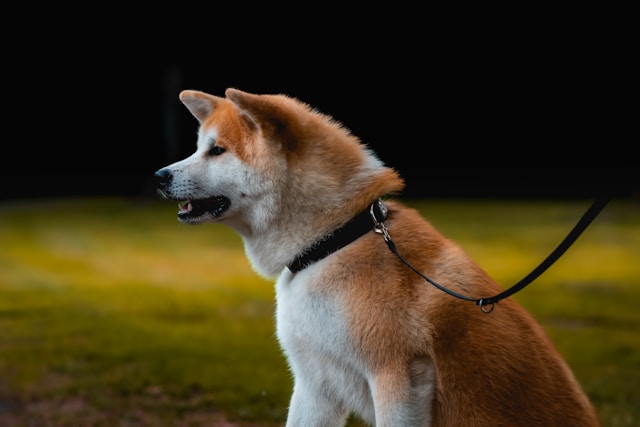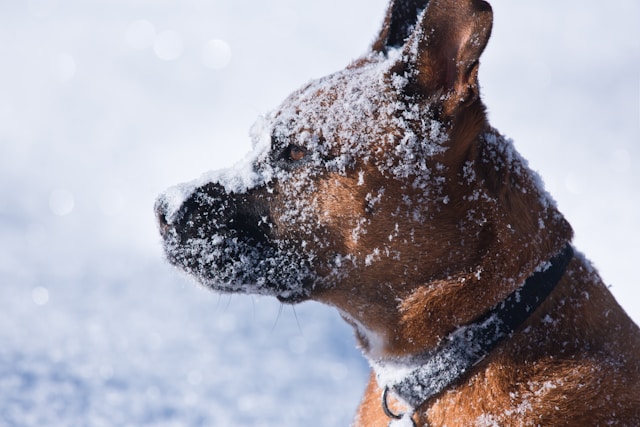Best Japanese Dog Names: 100+ Beautiful Names with Cultural Meanings

Japanese dog names offer a beautiful way to honor the rich culture and language of Japan while giving your canine companion a name with deep meaning and significance. Whether you have a Japanese breed like an Akita or Shiba Inu, or simply appreciate Japanese culture, these names provide distinctive options that blend cultural heritage with personal meaning. The best Japanese dog names combine authentic cultural elements with sounds that are easy for your dog to recognize and respond to.
Why Choose Japanese Dog Names?
Japanese names offer unique benefits that make them excellent choices for dogs:
- Rich cultural meaning - Each name carries deep significance rooted in Japanese history and values
- Distinctive sounds - Clear vowels and consonants that dogs can easily recognize
- Perfect for Japanese breeds - Authentic names for Akitas, Shiba Inus, and other Japanese breeds
- Conversation starters - Unique names with interesting stories and meanings
- Elegant simplicity - Many Japanese names are short, clear, and easy to call out
Strong Japanese Male Dog Names
These powerful Japanese names for male dogs embody strength, honor, and courage - perfect for dogs with noble and dignified personalities.
| Name | Meaning/Inspiration | Emoji | Popularity |
|---|---|---|---|
| Akira | Bright / Intelligent | ✨ | 89 |
| Hiro | Generous / Tolerant | 🤝 | 91 |
| Kenzo | Strong / Healthy | 💪 | 87 |
| Ryu | Dragon / Strength | 🐉 | 88 |
| Takeshi | Warrior / Strong | ⚔️ | 85 |
| Yuki | Snow / Happiness | ❄️ | 90 |
| Kenji | Intelligent / Second son | 🧠 | 84 |
| Satoshi | Wise / Intelligent | 🦉 | 86 |
| Hiroshi | Tolerant / Generous | 🕊️ | 83 |
| Noboru | Ascend / Rise | ⛰️ | 82 |
Hiro means “generous” and is perfect for friendly, outgoing dogs who love meeting new people. This name has become increasingly popular for dogs who show exceptional loyalty and kindness to their families.
Ryu translates to “dragon” in Japanese, making it ideal for powerful, protective dogs with strong personalities. The name carries connotations of mythical strength and wisdom in Japanese culture.
Akira means “bright” or “intelligent” and suits smart, quick-learning dogs. This name has gained popularity through Japanese cinema and anime, giving it both traditional roots and modern appeal.
Elegant Japanese Female Dog Names
These beautiful Japanese names for female dogs capture the elegance, grace, and delicate beauty celebrated in Japanese aesthetics.
| Name | Meaning/Inspiration | Emoji | Popularity |
|---|---|---|---|
| Sakura | Cherry blossom | 🌸 | 94 |
| Yuki | Snow / Happiness | ❄️ | 92 |
| Hana | Flower / Blossom | 🌺 | 91 |
| Akiko | Autumn child | 🍂 | 88 |
| Emiko | Beautiful child | 💖 | 89 |
| Midori | Green / Nature | 🌿 | 86 |
| Suki | Beloved / Liked | 💕 | 90 |
| Yoko | Positive child | ☀️ | 85 |
| Rei | Spirit / Beautiful | ✨ | 87 |
| Mika | Beautiful fragrance | 🌸 | 84 |
Sakura means “cherry blossom” and represents the fleeting beauty of spring in Japan. This name is perfect for gentle, beautiful dogs with sweet temperaments, especially those with pink or light-colored coats.
Yuki means “snow” or “happiness” and works wonderfully for white dogs or those with bright, joyful personalities. The name evokes the pure beauty of freshly fallen snow in winter landscapes.
Hana translates to “flower” or “blossom” and suits dogs with delicate, beautiful features or those who bring joy and beauty to your life. It’s a timeless name that celebrates natural beauty.
Nature-Inspired Japanese Dog Names
Japanese culture has a deep reverence for nature, and these names reflect the beauty and power of the natural world, perfect for dogs who love the outdoors.
| Name | Meaning/Inspiration | Emoji | Popularity |
|---|---|---|---|
| Kawa | River / Stream | 🏞️ | 83 |
| Mori | Forest / Woods | 🌲 | 85 |
| Sora | Sky / Heaven | ☁️ | 88 |
| Umi | Ocean / Sea | 🌊 | 86 |
| Kaze | Wind / Breeze | 💨 | 82 |
| Tsuki | Moon / Month | 🌙 | 87 |
| Hoshi | Star / Wish | ⭐ | 84 |
| Niji | Rainbow / Bridge | 🌈 | 81 |
| Yama | Mountain / Peak | 🏔️ | 83 |
| Taki | Waterfall / Cascade | 💧 | 80 |
Modern & Trendy Japanese Dog Names
These contemporary Japanese names reflect modern Japanese culture while maintaining traditional linguistic beauty, perfect for dogs in today’s world.
| Name | Meaning/Inspiration | Emoji | Popularity |
|---|---|---|---|
| Kaito | Ocean flying / Soar | 🌊 | 89 |
| Ren | Lotus / Love | 🪷 | 87 |
| Aoi | Blue / Hollyhock | 💙 | 86 |
| Haruto | Sun flying / Soar | ☀️ | 88 |
| Yui | Bind / Clothing | 🎋 | 85 |
| Riku | Land / Shore | 🏖️ | 84 |
| Mei | Bud / Sprout | 🌱 | 83 |
| Kira | Killer / Shine | ✨ | 82 |
| Nao | Honest / Straight | 🎯 | 81 |
| Taro | First son / Big boy | 👑 | 86 |
Spiritual & Philosophical Japanese Names
These Japanese names reflect the spiritual and philosophical traditions of Japan, including Buddhism, Shintoism, and concepts of harmony and balance.
| Name | Meaning/Inspiration | Emoji | Popularity |
|---|---|---|---|
| Zen | Meditation / Peace | 🧘 | 88 |
| Karma | Action / Fate | ⚖️ | 85 |
| Bodhi | Enlightenment / Awakening | 🕉️ | 83 |
| Kibo | Hope / Wish | 🌟 | 86 |
| Makoto | Truth / Sincerity | 💎 | 84 |
| Nori | Belief / Doctrine | 📿 | 82 |
| Shin | Heart / True | ❤️ | 87 |
| Wa | Harmony / Peace | ☯️ | 85 |
| Ai | Love / Affection | 💝 | 90 |
| Jin | Benevolence / Humanity | 🤲 | 81 |
Authentic Japanese Breed-Inspired Names
These names pay homage to Japan’s beloved native dog breeds, perfect for Japanese breeds or any dog you want to honor with breed-specific heritage.
| Name | Meaning/Inspiration | Emoji | Popularity |
|---|---|---|---|
| Akita | From Akita Prefecture | 🐕 | 91 |
| Shiba | Brushwood / Small | 🦊 | 93 |
| Inu | Dog / Canine | 🐶 | 89 |
| Kai | Shell / Ocean | 🐚 | 85 |
| Kishu | From Kishu region | 🏔️ | 83 |
| Hokkaido | Northern island | 🗾 | 84 |
| Tosa | From Tosa Province | 🏯 | 82 |
| Chin | Precious / Rare | 💎 | 86 |
| Spitz | Pointed / Sharp | ⚡ | 87 |
| Nihon | Japan / Japanese | 🇯🇵 | 88 |
Japanese Food & Cultural Names
These names draw inspiration from Japanese cuisine, traditions, and cultural elements that are beloved worldwide, perfect for food-loving dogs or cultural enthusiasts.
| Name | Meaning/Inspiration | Emoji | Popularity |
|---|---|---|---|
| Sushi | Vinegared rice | 🍣 | 89 |
| Miso | Fermented soybean paste | 🍜 | 86 |
| Sake | Rice wine | 🍶 | 84 |
| Mochi | Rice cake | 🍡 | 88 |
| Wasabi | Japanese horseradish | 🟢 | 83 |
| Tofu | Bean curd | 🧈 | 82 |
| Ramen | Noodle soup | 🍜 | 87 |
| Tempura | Battered and fried | 🍤 | 85 |
| Kimono | Traditional garment | 👘 | 86 |
| Origami | Paper folding art | 📄 | 84 |
Japanese Dog Names: Training & Pronunciation Tips
When choosing a Japanese name for your dog, consider these practical tips for successful training:
- Choose names with clear consonants like K, T, or R that carry well when calling your dog
- Keep names short (1-2 syllables) for easier recognition during training
- Avoid names that sound like commands (like “Matte” which sounds like “wait” in Japanese)
- Practice consistent pronunciation to help your dog recognize their name
- Use positive reinforcement when your dog responds to their Japanese name
- Consider your dog’s personality when selecting a name that reflects their character
- Test the name by calling it out loud before finalizing your choice
Japanese Dog Names: Your Questions Answered
What are the most popular Japanese dog names?
The most popular Japanese dog names combine cultural authenticity with easy pronunciation. For male dogs, names like Hiro, Kenzo, Akira, and Ryu consistently rank among the favorites. For female dogs, Sakura, Yuki, Hana, and Suki are perennial favorites. Names that reference Japanese culture (like Ninja or Samurai) or Japanese breeds (like Akita or Shiba) are also popular choices, especially for owners who appreciate the connection to Japanese heritage.
How do I pronounce Japanese dog names correctly?
Japanese pronunciation is generally straightforward with consistent vowel sounds. Each syllable is pronounced clearly and evenly with equal emphasis. Here are some key pronunciation guidelines:
- A is pronounced “ah” as in “father”
- E is pronounced “eh” as in “pet”
- I is pronounced “ee” as in “meet”
- O is pronounced “oh” as in “go”
- U is pronounced “oo” as in “moon”
For example, “Sakura” is pronounced “sah-koo-rah” and “Hiro” is pronounced “hee-roh.” When in doubt, listen to online pronunciation guides or ask Japanese speakers for help.
Are Japanese names good for specific dog breeds?
Japanese names are particularly meaningful for Japanese dog breeds like Akita, Shiba Inu, Japanese Chin, Kai Ken, Kishu Ken, Hokkaido, Shikoku, and Tosa. Choosing an authentic Japanese name for these breeds honors their cultural heritage and history. However, Japanese names work beautifully for any breed, especially dogs with dignified personalities (like German Shepherds or Dobermans) or delicate features (like Papillons or Maltese). The key is finding a Japanese name that reflects your dog’s unique personality and characteristics, regardless of their breed.
What are the best Japanese dog names for puppies?
The best Japanese names for puppies are short, clear, and easy to recognize. Names like Kai (ocean), Mochi (rice cake), Kiko (happy child), Yuki (snow), Hana (flower), and Taro (first-born son) work particularly well for puppies because they’re simple to pronounce and easy for young dogs to learn. When choosing a Japanese puppy name, consider selecting one that allows room for your dog’s personality to grow, or one that reflects a quality you hope they’ll develop as they mature. Many Japanese names also have meanings related to growth, potential, and new beginnings, making them perfect for puppies starting their life journey.
Can I modify Japanese names to make them shorter?
Yes, many Japanese names naturally lend themselves to cute nicknames. For example, “Sakura” can become “Saki,” “Hiroshi” can become “Hiro,” and “Takeshi” can become “Take.” This flexibility allows you to have both a formal name and an everyday nickname.
Do Japanese names have different meanings for male and female dogs?
Many Japanese names are unisex and work well for both male and female dogs. However, some names may have traditional gender associations or meanings that lean more masculine or feminine. Consider the meaning and cultural context when choosing, but ultimately, any name that feels right for your dog is appropriate.
What if my dog doesn’t respond to their Japanese name?
Like any name, it may take time for your dog to learn and respond to a Japanese name. Consistency in pronunciation and positive reinforcement when they respond will help. If you’re having trouble, consider whether the name might be too long or difficult to pronounce clearly, and don’t hesitate to adjust or choose a simpler alternative.
What are the most unique Japanese dog names?
For truly unique Japanese dog names that stand out at the dog park, consider these distinctive options: Raiden (thunder and lightning god), Kitsune (fox spirit), Mizuki (beautiful moon), Takara (treasure), Kaiju (monster, like Godzilla), Hanzo (famous samurai), Okami (wolf), Yume (dream), or Tsuki (moon). These names are less commonly used but still authentic to Japanese culture, making them perfect conversation starters. They combine cultural significance with distinctive sounds that will make your dog’s name memorable and special.
Related Dog Names by Origin & Culture
More Dog Name Ideas
Looking for even more options? Check out our other lists of dog names grouped by popularity, breed, theme, first letter, size and color to help you find a name as unique as your new puppy.


